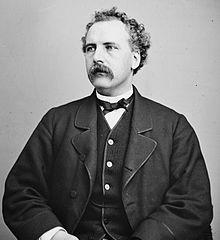Alexander Pope Quotes - Page 5

True wit is nature to advantage dressed; What oft was thought, but ne'er so well expressed.
Men must be taught as if you taught them not, and things unknown proposed as things forgot.
Sleep and death, two twins of winged race, Of matchless swiftness, but of silent pace.
For critics, as they are birds of prey, have ever a natural inclination to carrion.
Our judgments, like our watches, none go just alike, yet each believes his own
On life's vast ocean diversely we sail. Reasons the card, but passion the gale.
The vanity of human life is like a river, constantly passing away, and yet constantly coming on.
'Tis not a lip, or eye, we beauty call, But the joint force and full result of all.
Of Manners gentle, of Affections mild; In Wit a man; Simplicity, a child.
Love, free as air, at sight of human ties, Spreads his light wings, and in a moment flies.
The grave unites; where e'en the great find rest, And blended lie th' oppressor and th' oppressed!
A disputant no more cares for the truth than the sportsman for the hare.
Not to go back is somewhat to advance, and men must walk, at least, before they dance.






